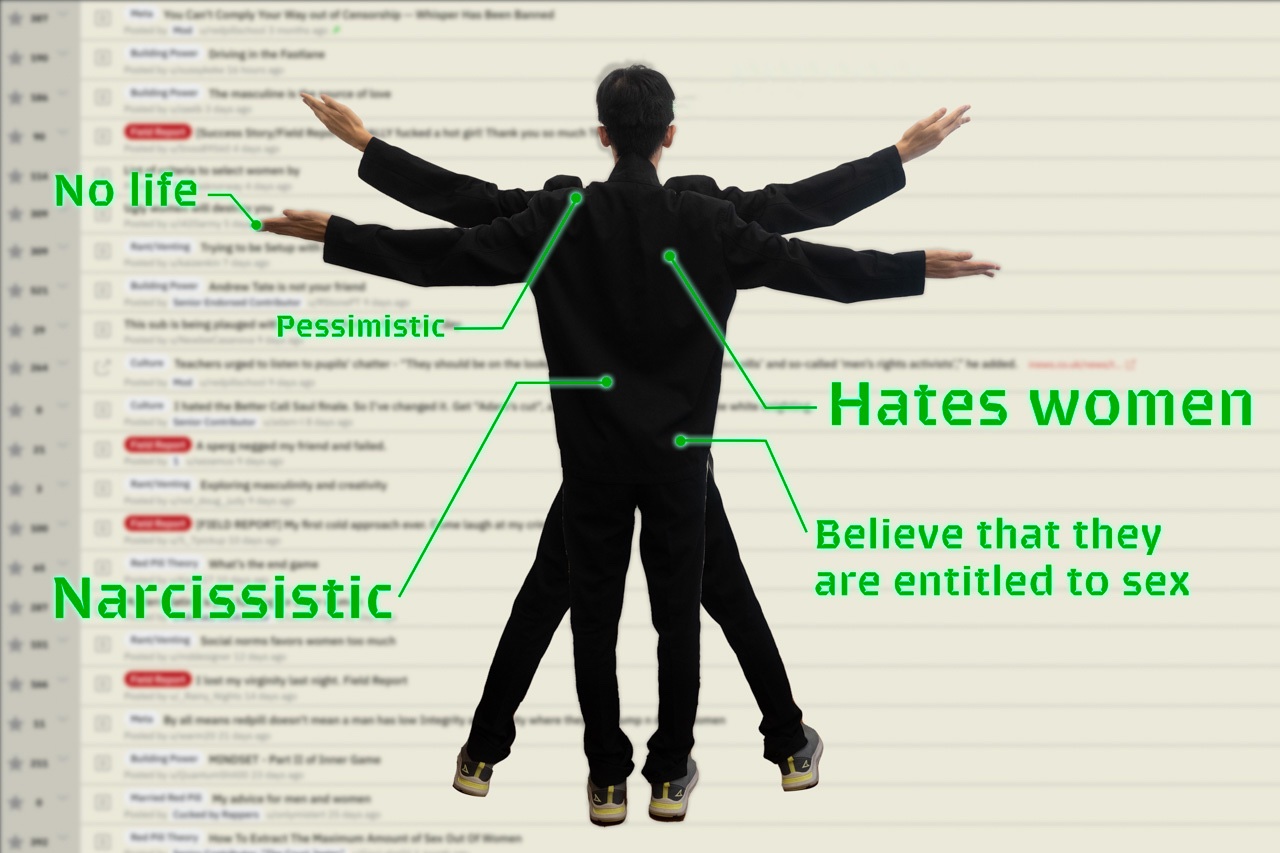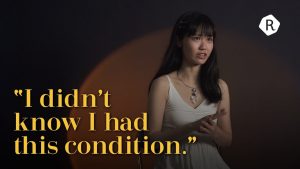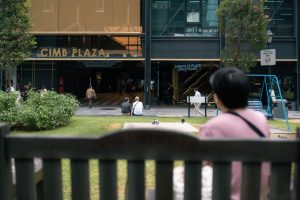All images by Stephanie Lee for Rice Media unless stated otherwise
24-year-old Phoenix fits the typical Singaporean male archetype.
An accounting graduate from a local university, he works as an auditor in a Big Four firm in Singapore. When not trawling through spreadsheets and crunching numbers, he relaxes by playing board games, DOTA, and watching anime.
ADVERTISEMENT
Prodded further, however, Phoenix reveals that he once identified as an incel.
A slew of disclaimers immediately follows this proclamation. “I really hope I can make a difference in how the community is viewed. I would think I am a moderate candidate,” he prefaces.
After all, the internet subculture is mainly associated with radical, even dangerous and violent beliefs.
For Phoenix, dispelling some of those misconceptions surrounding the incel community is important work. Especially when most incels now stand where Phoenix once stood—as moderates in a perceivably radical online community.
He confesses that it’s one of two reasons he agreed to the interview. The other? He wanted something fun to do—a brief respite before work piles up (he sells his soul to auditing, he tells me). There is a nasal quality to his voice, distinct over the din of Chinatown’s crowds as we make our way to the RICE office.
His blue polo T-shirt drapes loosely over his pencil-thin frame. “I’ve tried to gain weight by eating more, but it’s just my metabolism,” he tells me. “I don’t usually buy clothes as well. I’m quite frugal and trying to save money for the future. FIRE lifestyle.”
He answers in calm and quick logical spiels—as matter-of-factly as possible, almost as if engaged in perpetual debate.
“According to the Oxford dictionary definition, an incel is a member of an online community of young men who consider themselves unable to attract women sexually,” he explains.
“But logically, I would think that if you have never gotten a girlfriend before or for some time, then you are considered an incel by definition.”
An Introduction to Incels
‘Incel’ is short for ‘involuntary celibate’, a portmanteau that speaks for itself without needing further elaboration. But on the surface, what the incel community offers is online support for men who are lonely and unlucky in love.
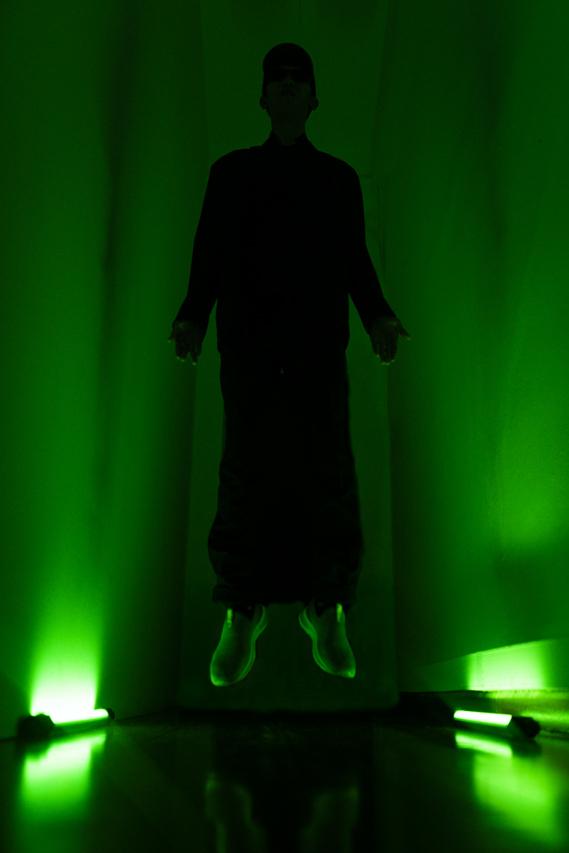
In media and pop culture, however, ‘incel’ usually refers to a self-radicalised community convinced of their often misogynistic and anti-feminist beliefs.
The incel community is part of the broader online ‘manosphere’, a collection of online sites discussing masculinity and men’s issues. They are united by a central belief that they lack partners because of superficial women. As in, they believe that these women will only date traditionally attractive men—tall, muscular, and according to Phoenix, with a jawline sharp enough to cut glass.
“In our world, incels consider male ‘Chads’ and female ‘Stacys’ as beautiful.
“‘Becky’ is the term used for your average girl. Most of the resentment is directed towards Beckys who date Chads,” Phoenix explains at the beginning of his brief rundown on incel terminology.
Even when brevity was the objective, Phoenix’s quick lecture on incel culture took a good twenty minutes. He stops just shy of diving down the rabbit hole of incel lore.
ADVERTISEMENT
Perhaps, what attracts would-be incels is the all-encompassing nature of incel theory, offering up a plethora of explanations as to why someone remains single.
“The community sees Beckys as confirming their hypothesis that women are superficial, especially when they stay in unhealthy relationships with Chads,” Phoenix says. There’s a sense of self-assuredness in his explanations, which reveals a sense of intimate, oddly familiar alignment with the subculture.
Phoenix clarifies that being on the losing end of a “demonstrably rigged” dating game is an incel’s source of anger. He believes that if people dated “within their league,” perhaps fewer people would have joined the community.
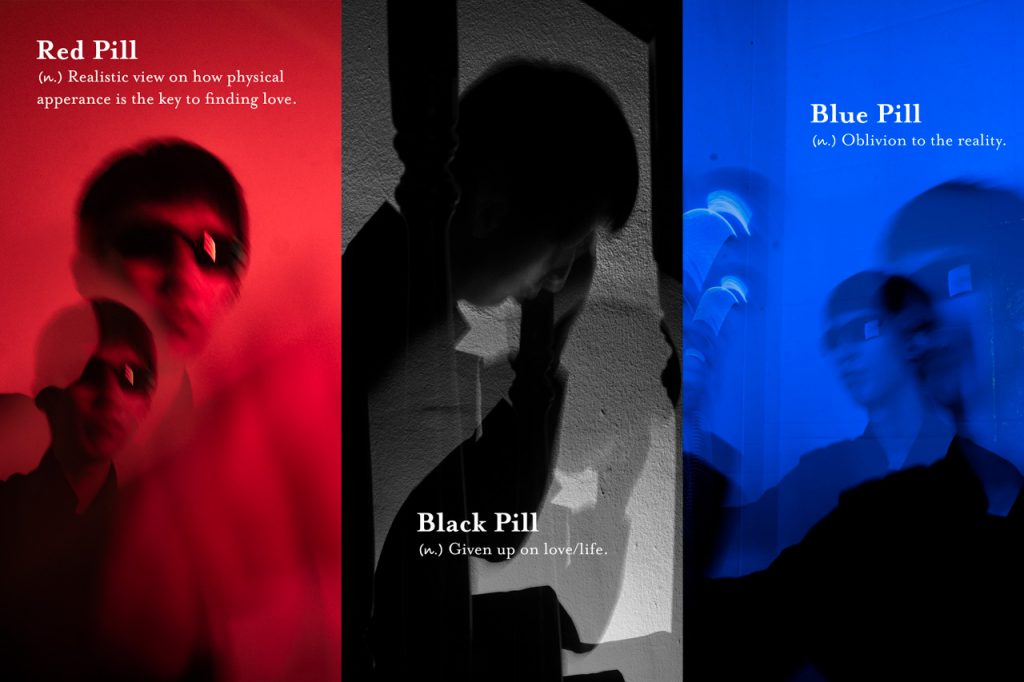
Called To Inceldom
Phoenix’s introduction to the incel community started in 2017 when he was in national service. Already an avid Reddit user, a serendipitous encounter with r/inceltears (now revived as r/inceltear) kicked off his journey towards inceldom.
r/inceltear is an online community of non-incels who often mock the sufferings of incels on Reddit. As an online watchdog community, members of r/inceltears would post screenshots and make fun of misogynistic comments and derogatory slurs against women, acting as a counter-narrative to the misogyny on display.
Phoenix feels this selective portrayal of incel thoughts is an unfair representation of the community—tantamount to punching down on the dejected and lonely.
“The more I read these screenshots, the more I related to some of their feelings of loneliness and dread,” recounts Phoenix.
“I think these non-incels cherry-pick the most offensive comments and then take them as representative of the community. Of course, there are bad sheep, but most are just lonely.”
It led Phoenix to main incel subreddits, one of which—the now banned r/braincels—would shape and inform his education in incel terminology and theory.
The vocabulary that he eventually learned explained away his loneliness and melancholy. These were familiar emotions after putting himself out there in the dating scene for two whole years with little to show for it.
“I used five dating apps and swiped every day until I ran out of profiles. After two years of swiping, I only managed to get a total of two dates with two different people,” Phoenix recalls.
He admits he felt miserable back then, especially when his first date blocked him on all social media channels after their first outing.
“That’s a success rate of less than two percent if you need an absolute scale,” he adds, his accountant hat clearly showing. “Personally, if you’re a decent person, you should at least have a chance. It’s just, you know, sad when the door is shut on you so quickly.”
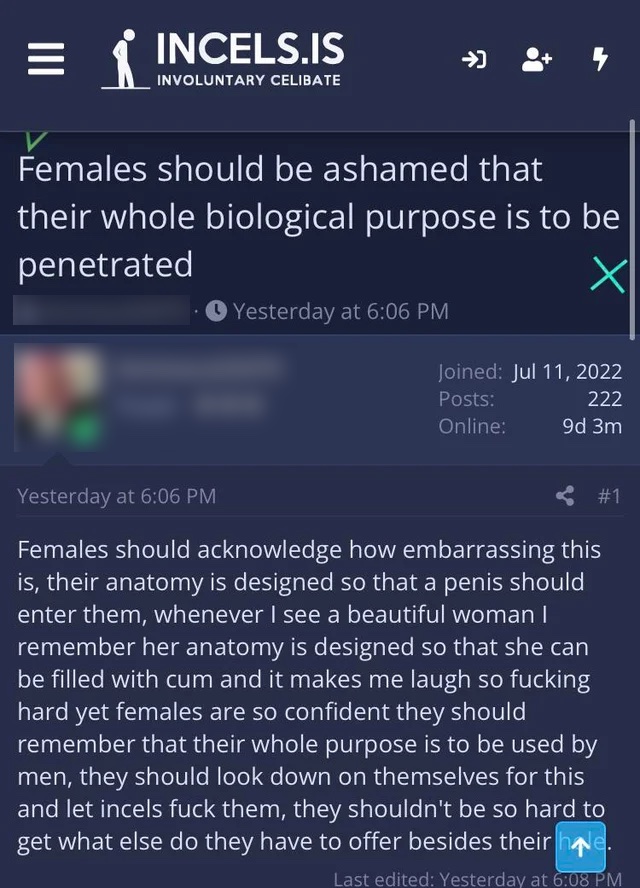
Formerly Incel, Currently Walking Contradiction
A year and a half after he identified as an incel, Phoenix’s inceldom came to an end—although he quips that his beliefs lasted much longer. He speculates that he had always been an incel, even before he chanced upon the community.
Fortunately for Phoenix, the end of his inceldom spelt the start of his great Singaporean love story.
He found a girlfriend, a coursemate he met during orientation, two months after his stint in university started in 2019.
And like all great Singaporean love stories, this one comes with a happy and slightly predictable ending: they are now looking to buy a BTO flat together and live happily ever after.
Still, although he has stopped identifying as one, incel beliefs are now an innate part of him. When asked what he now identifies with, he shrugs it off, saying that he is just an ordinary person with incel-like ideologies.
“I cannot see myself not relying on this lens to understand the world. I could be wrong, of course,” Phoenix clarifies.
“But in the absence of information, I will, more often than not, explain it in terms of ‘Chad’, ‘Becky’, and ‘Stacy’.”
“To be clear, I don’t identify as an incel anymore. And, to be fair, I don’t think the dating scene in Singapore is as bad as it seems. Maybe there are not as many incels in Singapore,” he admits.
In terminating his inceldom but still holding onto its beliefs, Phoenix finds himself in a strange, contradictory space—between villainising women and treating his girlfriend with respect.
He displays a fluidity of thought that he thinks explains this contradiction. “I am a major simp for my girlfriend. I treat her very well because I never want to feel the loneliness before I met her.”
In this case, incel ideologies immediately stand out as specific enough for people to relate to—and yet broad enough to mould into a palatable personal belief.
Perhaps this flexibility makes shedding incel ideologies more complicated than it needs to be for those who have left their inceldom behind.

The Manosphere of it All
Opportunities to connect with other Singaporean incels are hard to come by, given that brandishing one’s incel status is, according to Phoenix, social suicide.
In a country as small as Singapore, gossip spreads fast enough to deter people from sharing their incel status. Phoenix’s only incel friend is someone he introduced to the community.
Visibility for the group becomes even more tenuous with platforms like Reddit that have tried to nip the spread of misogynistic incel beliefs in the bud by shutting down incel subreddits. But it does little to dent the fabric of the broader manosphere in which they exist.
In this universe, incels fester in one corner. On the other side, an equally dubious and menacing community thrives—the Alpha Males. Between these two extremes are a slew of other displays of toxic masculinity, none of which are healthy outlets for masculine expression.
Therein lies the dangers of the manosphere. Regardless of whether they think they tick off the boxes of what an incel might stereotypically look like, men risk consuming badly formed beliefs and ideologies, all borne out of misplaced anger towards women.
Perhaps, this explains the meteoric rise of bad faith influencers like Andrew Tate.
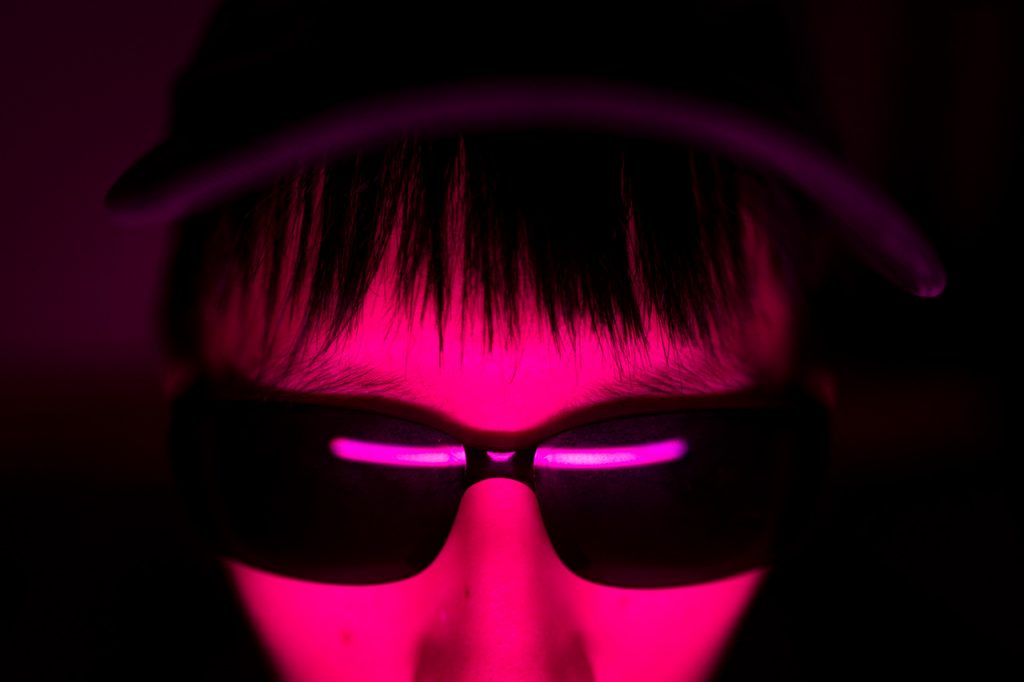
Phoenix The Normie
These toxic beliefs linger much longer than we would like to believe—a risk not worthy of the undertaking. Given the apparent dangers of buying into the manosphere, maybe Singaporean men should seek other ways to manage their frustrations and anger.
Phoenix reiterates yet again that his inceldom was one built on utter loneliness rather than sexual frustration. He was simply lonely and needed a support system to turn to.
“Normies like to say that having a girlfriend is not everything. But I was afraid I would spend the rest of my life alone. That’s sad.”
Now that he considers his inceldom over, he tells me that he’s setting his sights on working and saving money for a better future with his partner. In his free time, it’ll be Phoenix Wright: Ace Attorney, the legal visual novel game. And the reason behind his pseudonym.
As he sets off for home, he makes an abrupt turn to make an additional point to me. It’s part of his nature to want everything to be as explicated as possible and to address the possibility that the online mob might call him desperate.
“You know, I am okay with my girlfriend breaking up with me. I hope she finds someone better if she does. Now, I know that, at the very least, someone has loved me before.”
